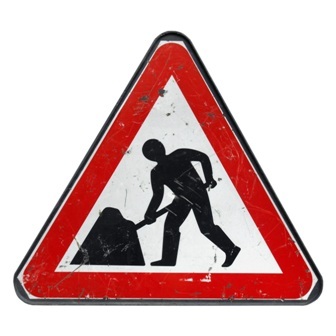Obituary – Professor Sir Alan Walters
SUGGESTED



Given by John Blundell, the IEA’s Distinguished Senior Fellow, to the Mont Pelerin Society in Sydney, Australia, on 15 October 2010.
Professor Sir Alan Walters was Europe’s Milton Friedman. Like Milton he came from humble origins. His father was an unemployed, and frankly close to unemployable, communist agitator.
At age 11 Alan failed the British 11-plus exam. If you passed this exam, you’d become a professional. If you failed you’d become a street sweeper or take some other manual job. Like I said, Alan failed.
But a teacher realised he had talent, Alan wanted to succeed and by a series of fortunate events he matriculated.
After leaving school and a spell in the army in WW2, Alan went back to see the same teacher and confided that he too wanted his lifestyle with the long holidays.
Teacher: Do you know anything about anything?
Alan: No, what little I did know the Army beat out of me.
Teacher: Well, if you know nothing about anything then the only subject to study is economics!
What he meant was that at university level it was the only subject that started from scratch as it was not then taught in high school anywhere in the UK; it started from zero base.
So Alan did an External University of London degree by attending a local community college.
And for the first and I believe only time in the history of the University of London an External candidate earned the best degree of the year. That was an astonishing feat, truly astonishing.
He became a prolific scholar, from a paper on road pricing written as an undergraduate, through transport economics, to econometrics, to monetary economics. His core skills as an economist were immense and wide ranging – he could do everything – but it did not result in gobbledygook but rather common sense economics.
He moved from Birmingham to LSE to Johns Hopkins and the World Bank, with two stops at 10 Downing Street with Margaret Thatcher who turned 85 this week. And along the way with Milton and MPS member John Greenwood, here today, he helped save the Hong Kong dollar.
When our esteemed outgoing President, Professor Deepak Lal, asked Alan “what was your key role at Number 10?” – Alan replied “to pour her a whisky at 10pm and to stiffen her spine!” And she knew his advice was common sense based on a solid foundation.
When 364 Brit economists wrote a letter to the Times criticising Margaret Thatcher’s economics and therefore Alan, then Labour leader Michael Foot challenged Margaret in Parliament. He waved the newspaper at her across the dispatch boxes, which are a gift of New Zealand and modelled on the Australian boxes:
Michael Foot: “Can she name two economists who support her?”
Margaret Thatcher: “Yes, Alan Walters and Patrick Minford” she spat back.
In the car back to Number 10 she confided to her aide: “Thank goodness he didn’t ask for three!”
A few years ago I made a 60-minute film of Alan for Liberty Fund’s Intellectual Portrait series. I encourage you all to view it.
My last question – which did not make the final cut but is archived – was as follows:
Me: “Alan, any regrets?”
Alan: (Pause, as was his wont): “Only one – that I did not meet my wife Paddie a lot earlier!”
Paddie was a regular at MPS, more of a spouse who attended sessions with Alan than always went off touring. Our thoughts go to Paddie today. She is “one of us”, as Margaret Thatcher used to say. Very much one of us!
Alan was a truly great man, a great economist and a great member of the MPS.
1 thought on “Obituary – Professor Sir Alan Walters”
Comments are closed.




One small but characteristically influential role of “spine-stiffening” type” was a “confidential”, if not secret, field-mission by Sir Alan and Paddie to Chile. They arrived as first class tourists on BA. There was no press at either end of the trip, neither before nor after the visit; it did not “happen”, although it was to the eventual great benefit of the whole population of a country of about 20 million people.
After the Falklands war, there had been a hiccup in the economic transformation of Chile and voices were rushing to claim economic policy failure. Doubts were prevalent and the Chilean Ambassador to London requested the assistance of the UK Government on behalf of his Government. Ms. Thatcher ask Sir Alan to go to Chile.
At the beginning of the ten days visit, there was a meeting with the President followed by sessions with the economic team. Sir Alan requested macro Central Bank and sector data. Since collection of this would take a few days, this meant that the field mission had five days to fill, and as guests of the Chilean Air Force they visited southern National Parks. Upon return, data was ready, discussions with the economic team continued. A last meeting with the President closed the visit.
Sir Alan description was, as closely as I can remember, as follows:
“When we arrived I was asked: what is going on here? Could you tell me? And I did.”
Chile went on to have thirty plus years of sustainable economic growth.